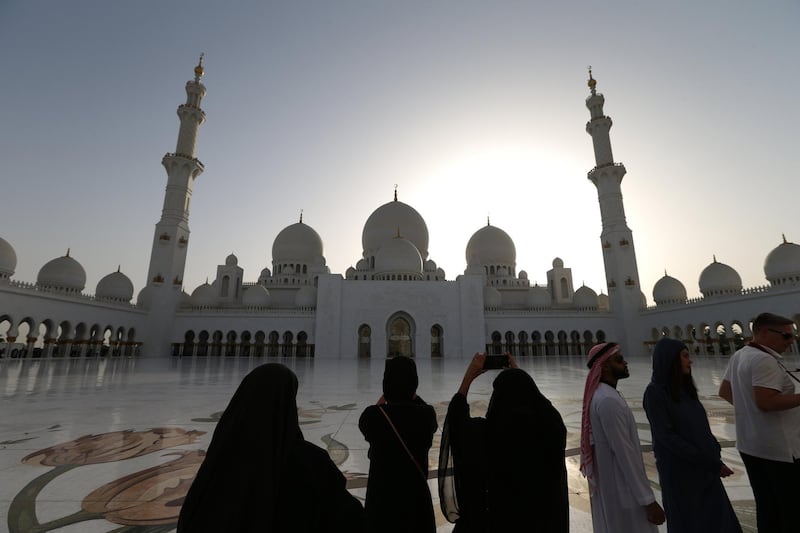Abu Dhabi’s tourism representatives are to receive training in languages including German, Hindi, Chinese, French, English and Arabic.
The Department of Culture and Tourism Abu Dhabi announced that staff working at overseas offices in 10 countries will be trained in the languages to better communicate with the international audience the department is targeting.
The move aims to further expand the number of visitors from Abu Dhabi's top visitor source countries.
During the first seven months of this year, Abu Dhabi received 242,700 visitors from China, which topped the visitors list so far, and was a 13.8 per cent increase on last year.
Indian nationals were the second highest visitors to the emirate, with 227,300 guests so far, a 17.8 per cent rise on last year.
There were 150,200 visitors from the UK – up 8.5 per cent from last year, and 109,100 guests from the United States, an increase of 24.6 per cent.
Abu Dhabi hotels said they are receiving high occupancy rates and expect to exceed last year’s record of 4.87 million guests.
___________
Read more:
Two of Abu Dhabi's star attractions appear on list of ‘world’s greatest places of 2018’
More than 230,000 holiday-goers travel between UAE and Oman during Eid
Dubai International records second-busiest month ever in July
___________
“Communicating with international markets in their own mother tongue will significantly expand our overseas offices’ reach and capability to promote the emirate of Abu Dhabi internationally,” said Saif Ghobash, undersecretary of DCT.
“We have received a very promising response from using the languages of the countries we operate in, proving the importance of providing language classes to our employees in order to enable them to convey messages and deliver Abu Dhabi’s image to the world more effectively and positively.”
“As language is as much about layers of cultural context and national history, this strategy stands as a very powerful tool for tourism promotion,” he added.
The language courses will take place in the capital and will run for two months at least, in collaboration with Berlitz International Language Institute.
“Mastering local languages is a highly effective tool in tourism promotion, and will further support DCT Abu Dhabi’s global positioning of the emirate as an exceptional destination for visitors and future investors,” the department said in a statement.







